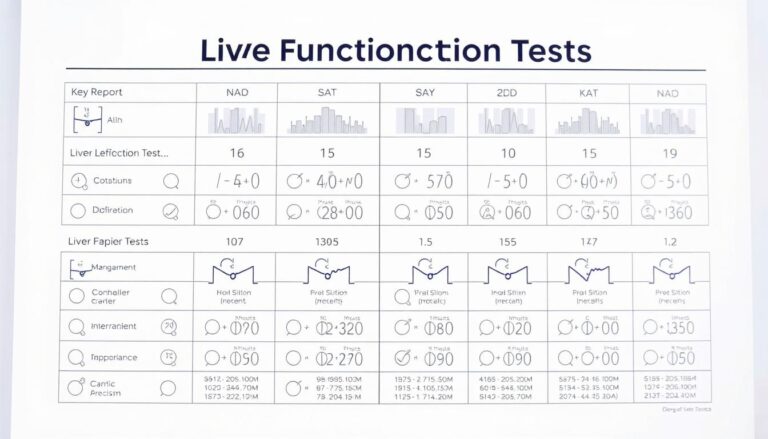Why Annual Health Checks Matter for Children

As parents, we naturally want the best for our children’s health and well-being. While we often focus on treating illnesses when they arise, preventive healthcare through regular monitoring plays an equally crucial role in ensuring our little ones grow up healthy and strong. Understanding the importance of comprehensive health assessments can make all the difference in your child’s development journey.
The Foundation of Preventive Pediatric Care
A routine health check-up for children serves as the cornerstone of preventive medicine. These regular appointments aren’t just about vaccinations or measuring height and weight – they’re comprehensive evaluations that help identify potential health concerns before they become serious problems. During these visits, healthcare providers assess various aspects of your child’s development, from physical growth to cognitive milestones.
Regular check-ups create a detailed health history that becomes invaluable as your child grows. This ongoing documentation helps doctors track patterns, identify changes, and make informed decisions about your child’s care. Think of it as creating a roadmap of your child’s health journey, where each visit adds another important piece to the puzzle.
Early Detection: The Key to Better Outcomes
One of the most significant advantages of annual health assessments is early detection of potential health issues. Children’s bodies are constantly changing and developing, making them susceptible to various conditions that might not be immediately apparent to parents. Regular screenings can identify problems ranging from vision and hearing issues to developmental delays and chronic conditions.
Early intervention often leads to better treatment outcomes and can prevent minor issues from developing into major health concerns. For instance, detecting a learning disability early allows for appropriate educational support, while identifying nutritional deficiencies can prevent long-term growth and development problems.
Understanding Why Lab Tests Are Important for Kids
Many parents wonder about the necessity of laboratory testing for their children. Lab tests are important for kids because they provide objective data about your child’s internal health that can’t be assessed through physical examination alone. These tests can reveal hidden conditions, nutritional deficiencies, infections, and other health issues that might not show obvious symptoms.
Laboratory testing helps establish baseline values for your child, making it easier to detect changes over time. Blood work can reveal anemia, diabetes, thyroid problems, and immune system issues. Urine tests can detect kidney problems or infections, while other specialized tests can screen for genetic conditions or developmental concerns.
Monitoring Growth and Development
Children experience rapid changes during their developmental years, making regular monitoring essential. A lab test for growth and development issues can identify hormone imbalances, nutritional deficiencies, or genetic conditions that might affect your child’s normal development pattern.
Growth hormone deficiencies, thyroid disorders, and nutritional imbalances can significantly impact a child’s physical and cognitive development. Early detection through appropriate testing allows healthcare providers to implement treatment plans that can help children reach their full potential. These tests become particularly important when parents or teachers notice developmental delays or when a child’s growth pattern deviates significantly from normal ranges.
Making Healthcare Accessible
One common concern among parents is the cost associated with regular health monitoring. Fortunately, affordable lab tests for kids’ health have become increasingly available, making preventive care accessible to more families. Many healthcare facilities now offer comprehensive pediatric testing packages at reasonable prices, recognizing the importance of early detection and prevention.
Insurance plans typically cover routine preventive care, including recommended screenings and tests. It’s worth checking with your insurance provider to understand what pediatric health services are covered under your plan. Some community health centers and clinics also offer sliding scale fees based on income, ensuring that financial constraints don’t prevent children from receiving necessary care.
Building Healthy Habits Early
Regular health check-ups do more than just monitor physical health – they help establish positive healthcare habits that will benefit your child throughout their life. Children who grow up with regular medical care are more likely to continue prioritizing their health as adults. These visits also provide excellent opportunities for health education, teaching children about nutrition, exercise, hygiene, and other important health concepts.
Healthcare providers can address concerns about mental health, social development, and behavioral issues during these visits. They can provide guidance on age-appropriate topics like screen time, physical activity, nutrition, and sleep hygiene, helping parents make informed decisions about their child’s lifestyle.
The Role of Professional Healthcare Partnerships
Establishing a relationship with reliable healthcare providers and testing facilities is crucial for maintaining your child’s health. Professional partnerships ensure continuity of care and create a comprehensive support system for your family’s health needs.
For comprehensive and reliable laboratory testing services, families can turn to Referral Labs, a trusted provider of pediatric health testing services. Our experienced team understands the unique needs of children and provides accurate, timely results that help healthcare providers make informed decisions about your child’s care.
Contact Details:
- Phone:+91 6363136620
- Website: https://referrallabs.in/
- Email: info@referrallabs.in
Address: No. 39 & 40, Ground Floor, NCBS Road, Canara Bank Layout, Rajiv Gandhi Nagar, Opp. Vivekananda School, Sahakar Nagar Post, Bengaluru, Karnataka – 560092
Most pediatricians recommend annual check-ups for school-age children, with more frequent visits for infants and toddlers. Your healthcare provider may recommend more frequent visits if your child has specific health concerns or risk factors.
Common tests include complete blood count (CBC), basic metabolic panel, lipid screening, and urinalysis. Additional tests may be recommended based on your child’s age, family history, and specific health concerns.
While newborns receive several screening tests, routine lab work typically begins around school age (5-6 years) unless there are specific health concerns that warrant earlier testing.
Laboratory tests are generally safe for children. The most common concern is mild discomfort from blood draws, but experienced pediatric phlebotomists use techniques to minimize discomfort and anxiety.
Explain the process in age-appropriate terms, stay calm and reassuring, bring comfort items if allowed, and consider scheduling the appointment at a time when your child is well-rested and fed (unless fasting is required for specific tests).







